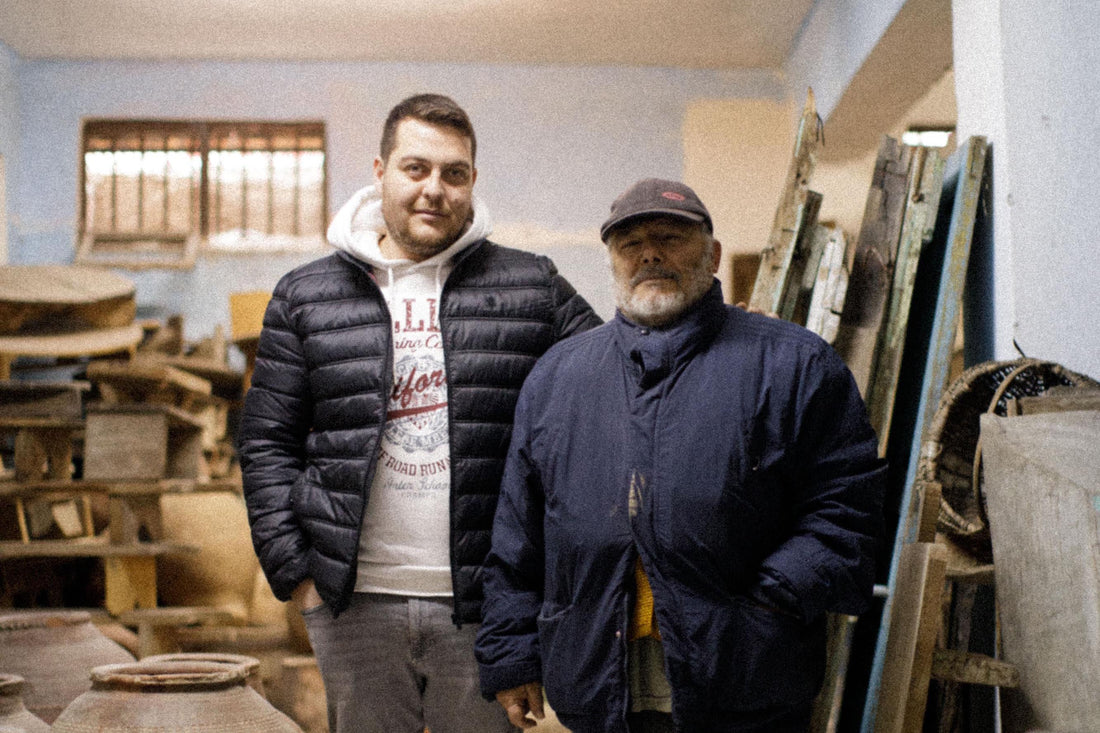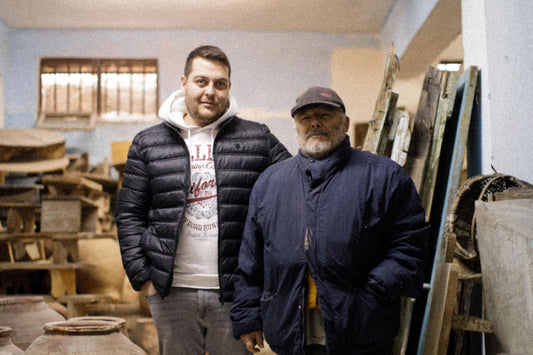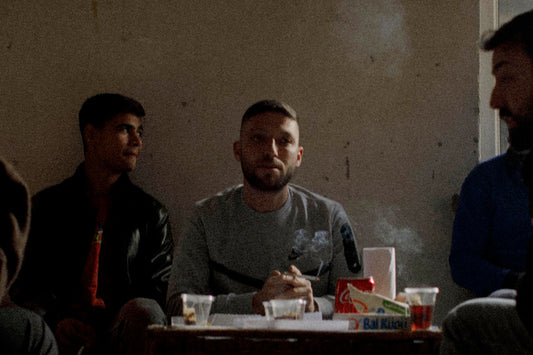Day 3.
Apartment buildings cling to the hillside in small clusters, with occasional pastel-coloured minarets jutting up slenderly towards the bruised winter skies. Farms and olive groves surround them before cobbled streets climb gently up the mountain slopes, finding themselves occasionally in a small village square with a mosque, a coffee shop, a broken down tractor, various street cats, elderly women and - in one part of town - the office of a local antique collector.
Over 200 collectors operate in the hill country, north of Izmir, going from home to home, offering to trade old pots, jewellery and ornaments for modern necessities, from the locals who have dwelt in its valleys for generations.

Our hosts today are Özden and Zihni. They’ve come to collect us from our hotel. Özden can be no more than 30 years old, but has been doing this work with his father for over 20 years. Zihni sits, like a happy toad in the passenger seat of the car, felt cap resting on his head with just enough of a gap to allow his kind eyes to glint at us. He smiles and croaks a big ‘Welcome!’, revealing two remaining teeth in a mouth full of gums.
Zihni is well travelled in Turkey - he’s a nomad - but he grew up in a tent amongst the blue-grey mountains that peacefully watch over us as we drive. ‘And not one of these modern tents’ he assures us. ‘It would be very cold and we had no running water or electricity’. He would come down the mountain seasonally for schooling in the town, but school isn’t where he found his wisdom. ‘If you stay just one night in the mountains you understand life much, much, much better’, he professes from the front seat with longing satisfaction.

We’re visiting three warehouses today, punctuated with chai, Turkish coffee and Zihni's stories. ‘I’m an old man. I’m 72!’ he spits with a laugh and chai swimming around his gums, as we chat about the internet. ‘My brain doesn’t work with these things’. Zihni is an ancient soul. As he points out one of the new mosques, he shouts ‘Ugly!’. They don’t make them like they used to. It’s an opinion he shares about pottery too. ‘I like fragments much more than good condition ones. Fragments have a lot more meaning.’
We ask him why he collects antiques. ‘It’s in my soul’, comes the answer before our question could finish itself. He tells us about the time he lived in one of the caves in Cappadocia for a year. Proudly, he’s never lived in a new-build and always finds himself amongst old dwellings.
‘The earth gives me energy. The problem with people nowadays is they’ve lost their relationship with nature. Children live in apartments, go to school in apartments… they no longer see the power of nature.’ There’s something kindred with the ancient mountains and Zihni's antiques. He laments as Özden drives us home again, past the olive groves, ‘They don’t make the pots like this any more. It was an art back then. The shape of the pots tells you many stories’ He pauses briefly to glance out of the window, skyward, …’ if you can understand them.’




